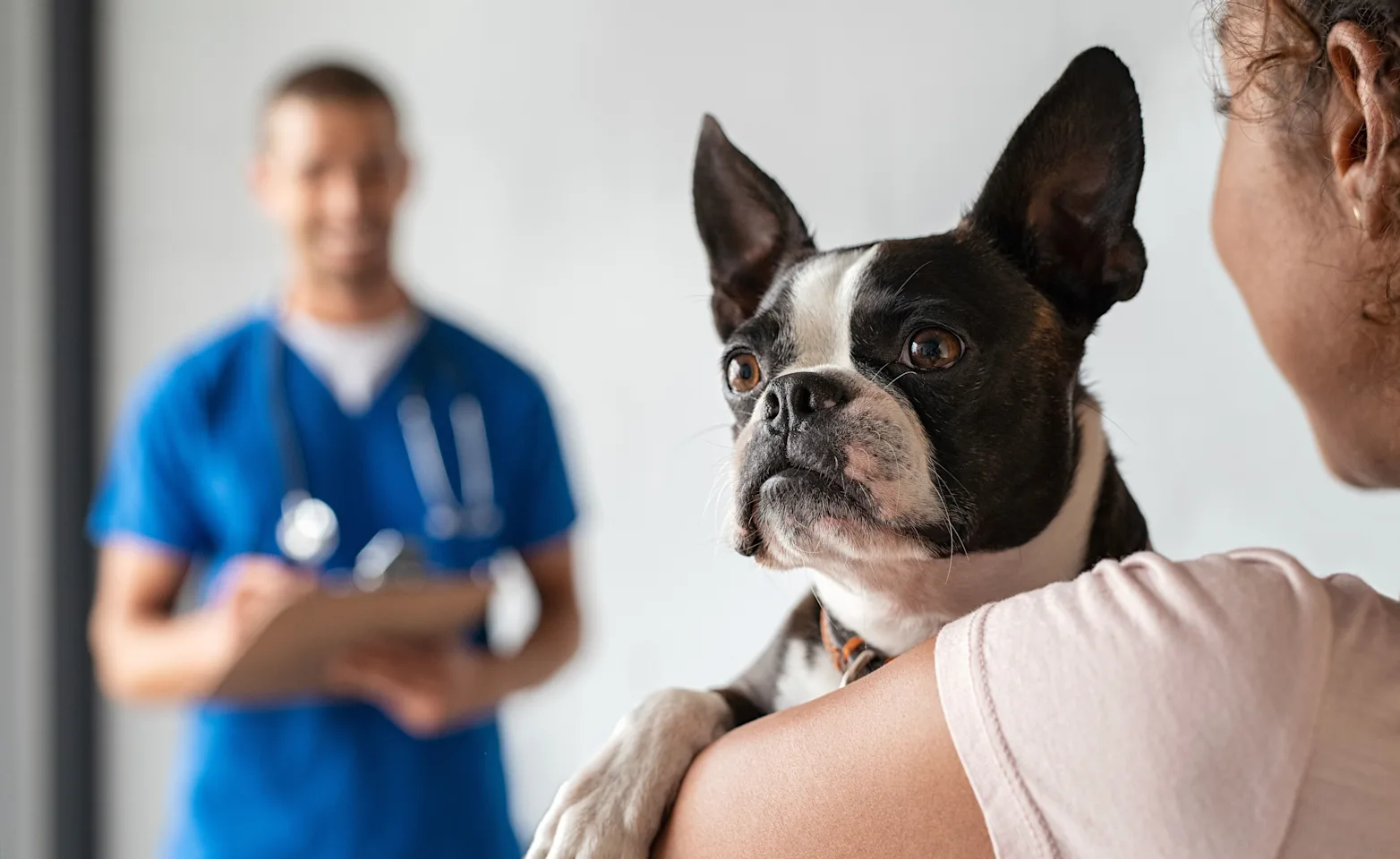Northeast Indiana Veterinary Emergency & Specialty Hospital

NIVES provides around-the-clock emergency care, 365 days a year. We have an emergency veterinarian and experienced technical support staff on-site at all times, ready to provide the expert care your pet needs at a moment’s notice.
When Should I Seek Emergency Veterinary Care?
While calling ahead is appreciated so we can prepare for your arrival, you do not need an appointment to meet with a member of our emergency team. Pets are examined on a first-come, most-critical basis, so we appreciate your patience if another pet requires immediate attention before yours. If triage indicates a serious problem, we may ask to take your pet directly to our treatment area for examination by a doctor.
Seek immediate veterinary care if your pet is experiencing:
Difficulty breathing, blue tongue, or raspy breathing sounds
Swollen or distended abdomen (with or without productive vomiting)
Inability to urinate or defecate, especially if straining (cats may repeatedly go to the litter box)
Ingestion of a toxin, including but not limited to: chocolate, rodenticides (D-Con), prescription or over-the-counter medications, illegal drugs, xylitol (artificial sweetener), nicotine, household cleaners. Bring the container with you.
Trauma, such as bite wounds, lacerations, being hit by a car, falling from a height, or experiencing blunt force—even if no symptoms are apparent
Collapse, inability to stand or walk
Loss of balance or consciousness, convulsions, or seizure activity
Bleeding that does not stop within 5 minutes (apply pressure with a clean cloth while on your way)
Vomiting or diarrhea with blood
Signs of heatstroke: heavy panting, weakness
Rattlesnake envenomation
Our On-Site Emergency Capabilities
Our hospital is equipped with advanced diagnostic, surgical, and therapeutic technology to provide comprehensive care all under one roof. Our services include:
24/7 ICU monitoring
Isolation and oxygen therapy
Intravenous fluid therapy
Emergency surgery
In-house pharmacy
Blood transfusions
Blood pressure and ECG monitoring
Digital radiography with radiologist consultations
Emergency ultrasound
Computed tomography (CT)
In-house laboratory
Ethylene glycol (antifreeze) testing
Infectious disease testing
We are also home to a variety of veterinary specialists in multiple disciplines, enabling seamless transfer if more advanced or specialized care is needed. Emergency conditions can affect multiple areas of the body, and our collaborative team approach ensures your pet receives the most comprehensive care possible.
What To Expect
Check-in
If your pet is experiencing an emergency, please enter the lobby and check in with the front desk. Please note that payment is due at the time of service. If you have pet insurance, please provide a team member with this information.
If you are concerned that your pet may be exhibiting symptoms that may indicate a communicable disease (kennel cough, parvovirus, upper respiratory infections in cats, etc.). please park in a numbered parking spot and call (260) 426-1062. Our staff will help you complete the check in process.
If you have a young pet who has not been fully vaccinated, please let our staff know.
Please bring your cat in a carrier. If you do not have a carrier, please notify our staff and we can provide a cardboard carrier for you.
Triage
Patients will be seen based on priority: those needing immediate, lifesaving care (e.g., respiratory distress) will be treated first, followed by stable patients needing urgent care (e.g., vomiting, diarrhea), and then those with less urgent conditions (e.g., ear infections). There may be delays for stable patients, so please keep us informed if your pet’s condition worsens.
A triage team member will assess your pet’s symptoms with you in the lobby. Afterward your pet will be taken to the treatment area for a vitals assessment. This typically takes 10-15 minutes but may be longer if other emergencies arise. Though you can’t accompany your pet during this process, it helps us work efficiently. If your pet has a history of stress at the vet, inform the triage team member so we can ensure their comfort.
After the assessment, an ER team member will update you. If a veterinarian isn't immediately available, your pet may be returned to you to wait. Wait times can vary due to the unpredictable nature of emergencies. We’ll check in with you and your pet hourly. If your pet’s condition worsens, inform the front desk immediately.
Please stay in the lobby during the triage process. Leaving before signing a care estimate could delay your pet’s care. If you need to leave, notify the front desk.
Meeting with the Doctor
When a veterinarian is available, your pet will be taken to the treatment area for an exam. After the exam is completed, a veterinarian will discuss care options with you.
After discussing care options, the veterinarian will provide a written estimate.
A team member will review this estimate with you. If you agree to the treatment plan, you will be required to leave the high end of the estimate.
Once the deposit is made, you may leave the hospital while diagnostics and treatments are completed. Do not leave before this step, as it could delay your pet’s care. If you must leave earlier, notify the front desk. It’s crucial to remain reachable by phone to avoid delays in your pet’s treatment.
Diagnostics and Treatments
Your pet’s veterinarian will discuss any diagnostic results with you once all diagnostics are completed. Please note, some diagnostic result time frames may vary depending on your pet’s treatment plan. Based on the results, an adjusted treatment plan and estimate may be provided.
Hospitalization and Visitation
We encourage visits from owners but ask that you call first to let us know you are coming. We allow visitation between 10 am and 10 pm. Please keep in mind that there may be a short wait if the staff is working with a critical patient. We make every effort to accommodate you and your family. We will do our best to keep track of your pet’s items during his or her stay. We cannot guarantee that the items will be returned; therefore, sentimental items should be left at home. We have a variety of diets available but if your pet is on a special diet, you can leave that with us.
Discharges
We’ll contact you to schedule discharge when your pet is ready to go home. Discharges may not be available during rounds and shift changes.
Upon arrival, please check in with the front desk. A team member will review at home care instructions and answer any additional questions you may have. The discharge process typically takes 15-30 minutes so please plan accordingly.
Finally, your pet will then be returned to you.
